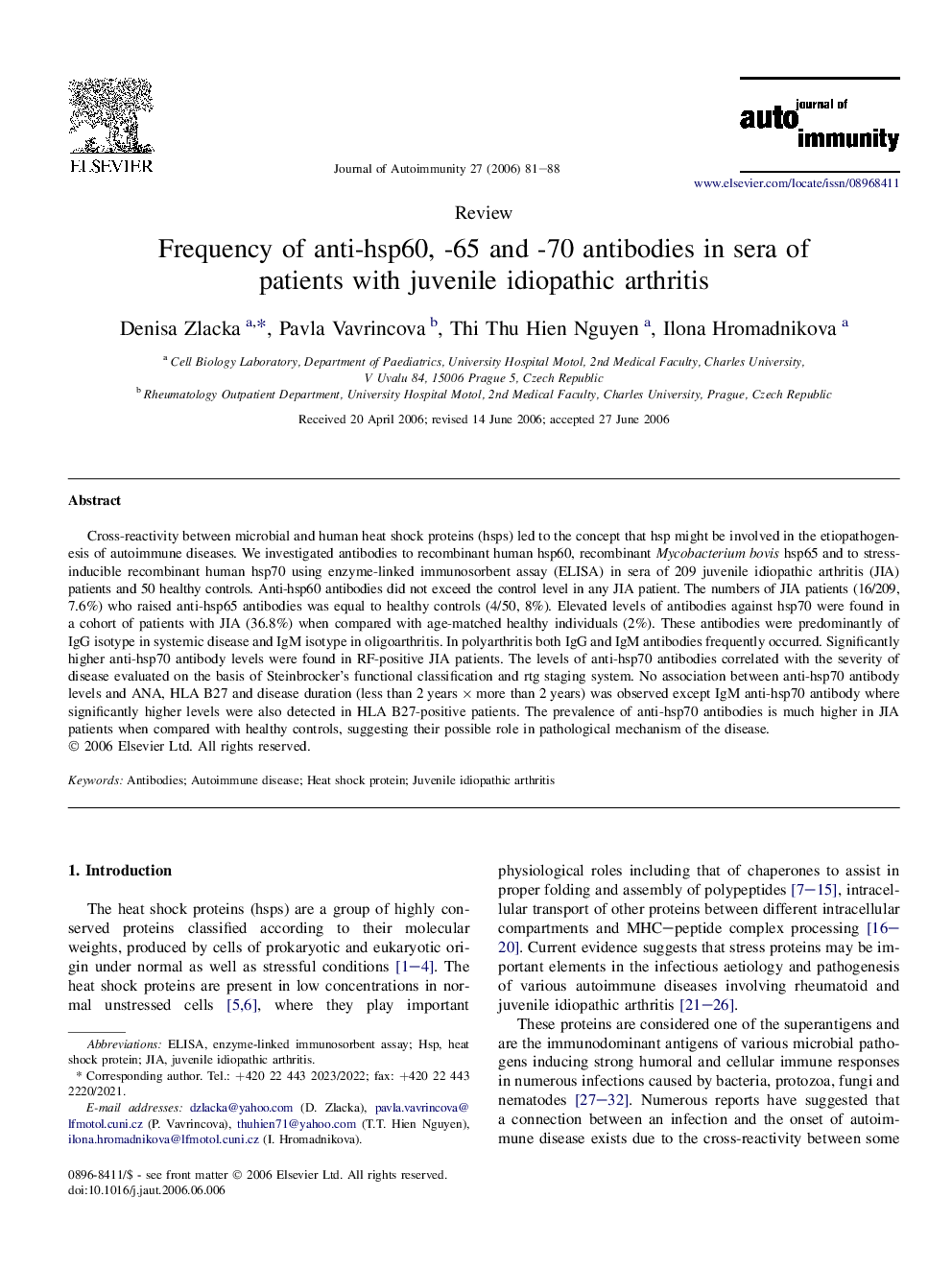| Article ID | Journal | Published Year | Pages | File Type |
|---|---|---|---|---|
| 3368576 | Journal of Autoimmunity | 2006 | 8 Pages |
Cross-reactivity between microbial and human heat shock proteins (hsps) led to the concept that hsp might be involved in the etiopathogenesis of autoimmune diseases. We investigated antibodies to recombinant human hsp60, recombinant Mycobacterium bovis hsp65 and to stress-inducible recombinant human hsp70 using enzyme-linked immunosorbent assay (ELISA) in sera of 209 juvenile idiopathic arthritis (JIA) patients and 50 healthy controls. Anti-hsp60 antibodies did not exceed the control level in any JIA patient. The numbers of JIA patients (16/209, 7.6%) who raised anti-hsp65 antibodies was equal to healthy controls (4/50, 8%). Elevated levels of antibodies against hsp70 were found in a cohort of patients with JIA (36.8%) when compared with age-matched healthy individuals (2%). These antibodies were predominantly of IgG isotype in systemic disease and IgM isotype in oligoarthritis. In polyarthritis both IgG and IgM antibodies frequently occurred. Significantly higher anti-hsp70 antibody levels were found in RF-positive JIA patients. The levels of anti-hsp70 antibodies correlated with the severity of disease evaluated on the basis of Steinbrocker's functional classification and rtg staging system. No association between anti-hsp70 antibody levels and ANA, HLA B27 and disease duration (less than 2 years × more than 2 years) was observed except IgM anti-hsp70 antibody where significantly higher levels were also detected in HLA B27-positive patients. The prevalence of anti-hsp70 antibodies is much higher in JIA patients when compared with healthy controls, suggesting their possible role in pathological mechanism of the disease.
